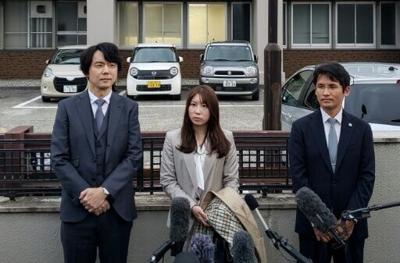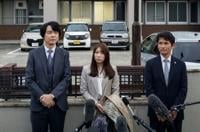A Japanese court handed down an eight-year jail sentence on Tuesday to the father of a woman who publicly accused him of rape, a rare case in the country where many victims stay anonymous.
Koji Daimon was convicted of raping his daughter Riho Fukuyama in 2016, when she was in high school.
He admitted to the act but maintained his innocence, arguing that "my daughter was in a state where she could have resisted".
In the ruling, judge Toshiaki Umezawa said that "given that the victim continues to suffer physical and mental distress to this day... the consequences must be deemed grave".
Fukuyama says the rapes began when she was in junior high school, when her mother was not at home.
Fukuyama went public in March last year following the arrest of her father.
Just a handful of other victims of similar crimes have revealed their identities in Japan.
"I was relieved" after hearing the ruling, Fukuyama told reporters gathered outside the court in Toyama, a coastal city in central Japan.
"I want to tell the world sexual violence within families does exist. Please don't look away from victims."
At a press conference later, she said: "I want to tell myself: well done."
But she described the trial as "extremely tough".
"It was painful to talk about things I wouldn't discuss even with close friends, like in what (body) position" she was raped, she said.
"I had to return to my past self and vividly recall the details."
Fukuyama said she has suffered from flashbacks and nightmares in the years since she was raped.
Her husband Yoshiki Fukuyama, also present at the press conference, said she used to cry for hours and only felt safe with four locks on the door.
"I want people to know this is the reality of those who have suffered sexual violence," he said tearfully, urging people to "stand up" for other victims.
- Journalist, soldier go public -
Among victims who have chosen to go public with their accusations are journalist Shiori Ito, who won a landmark civil case against a prominent TV reporter she accused of raping her.
And in 2021, Rina Gonoi accused fellow soldiers of sexual assault, and three of them were later given suspended sentences. She left the military after the assault.
Both women were praised for their bravery in coming forward but also received a barrage of online hate, which forced Ito to move to London.
In a recent high-profile case, an Osaka prosecutor accused her former boss of raping her, but she remains anonymous as she hopes to return to work.
Even though there has been no major #MeToo movement like those elsewhere around the world, modest-sized rallies against sexual violence sprang up across Japan after several alleged rapists were acquitted in 2019.
Law changes have also helped. The definition of rape was broadened in 2017, while the need for victims to prove violence or intimidation was removed in 2023.
As Fukuyama's assaults predated the law changes, the local prosecutors office indicted her father under the then-applicable offence.
"I know victims are suffering," Riho Fukuyama said. "I know it's hard, but please speak up and ask for help."
"You have allies," she said.
nf/aph/mjw















(0) comments
Welcome to the discussion.
Log In
Keep it Clean. Please avoid obscene, vulgar, lewd, racist or sexually-oriented language.
PLEASE TURN OFF YOUR CAPS LOCK.
Don't Threaten. Threats of harming another person will not be tolerated.
Be Truthful. Don't knowingly lie about anyone or anything.
Be Nice. No racism, sexism or any sort of -ism that is degrading to another person.
Be Proactive. Use the 'Report' link on each comment to let us know of abusive posts.
Share with Us. We'd love to hear eyewitness accounts, the history behind an article.